Share this
October 25, 2016
One of the most important skills in a successful professional’s repertoire is their decision making ability. Yet, many of the hardest decisions are made under less than optimal conditions and perhaps, significant levels of stress, which can lower our ability to choose the right path or formulate solutions in the majority of situations. This presents an interesting paradox – when the stakes are high, we may be far less capable.
Luckily, decision making is a skill that can be improved and many of the factors that effect it adversely can be mitigated. Here are several methods to consider for making better decisions under stress:
Understand Your Problem
Although it is impossible to gain complete knowledge on any problem, we need to take as much time as possible to develop an understanding since it is key to making good decisions. Simply put, the more information you have, the greater the chance you will make better decisions. Therefore, start with an outline or rough conceptualization and fill in the details as time allows.
Rely On Different Approaches (Analytical/ Intuitive)
Every problem can be solved better using either an analytical or intuitive approach (or a combination of the two). On one hand, the former is understood as using logic or reasoning. The latter, on the other hand, relies more on a “gut” feeling or instinctive preferences.
When considering which is best, you need to consider the context and your own background. Perhaps the top three issues to evaluate first are time, expertise and understanding. For example:
- How much time do you have?
- Analytical requires more time than intuitive.
- What is your level of expertise?
- Both hinge heavily on the level of expertise with intuition more significantly affected. Thus, intuition will likely generate poor results without high levels of expertise.
- How much understanding do you have on the problem?
- An analytical approach may be more effective when you can continue to develop a greater understanding.
- An intuitive approach may be more effective when low understanding but high expertise exists and very little new information can be gained.
Use A De-Stress Period
We can decrease our stress levels greatly by employing de-stress periods. Under overwhelming pressure, it is common to either think that there is no time for this period or the opportunity costs are high. In other words, the time spent working is more beneficial than time spent de-stressing. This is generally untrue, however. Honestly consider whether you have the time to take these breaks since clarity along with the ability to produce can be boosted dramatically.
Here are several examples of de-stressing activities:
- Light workout
- Massage
- Friendly conversation
- Meditation
- Comedic movie
- Light reading
Ask For A Second Opinion
Stress can negatively affect how we perceive a problem, which may cause us to narrow our view and lose focus on key issues, implications and facts. If you have access to a trustworthy source for a second opinion, use it. This person can potentially offer a reinvigorated sense of understanding and further develop your own solutions.
Decision making is a skill whose importance cannot be understated. It can significantly change an individual’s efficacy in any work environment. Because of this, it is a well researched area and many resources are available to improve it. These 4 offer a good start to the learning process.


